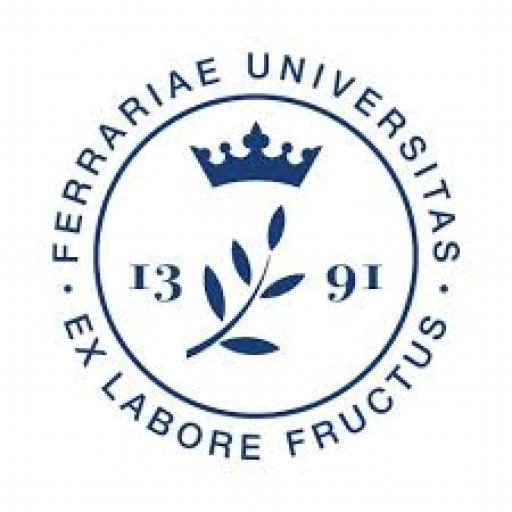Photos of university / #uwtsdinternationalstudents
The Bachelor of Science in Medical Ethics at the University of Wales is a comprehensive program designed to provide students with an in-depth understanding of the complex ethical issues that arise in the medical and healthcare professions. This multidisciplinary course combines philosophical, legal, and practical perspectives to equip graduates with the critical thinking skills necessary to navigate ethical dilemmas in medical practice, research, and policy-making. Throughout the program, students explore fundamental questions concerning patient autonomy, confidentiality, informed consent, end-of-life decisions, and emerging technologies such as genetic engineering and cloning. The curriculum incorporates a blend of lectures, seminars, case study analyses, and ethical debates, fostering an environment of active learning and intellectual engagement. Students will also examine the societal, cultural, and legal contexts that influence medical ethics worldwide, gaining an appreciation for diverse perspectives and ethical standards. The program emphasizes the development of analytical skills, moral reasoning, and effective communication, preparing graduates for careers in healthcare ethics consultation, medical research oversight, policy development, and academic research. Additionally, students have the opportunity to engage in practical placements with healthcare institutions, ethics committees, or research organizations, enabling them to apply theoretical knowledge in real-world settings. With a flexible learning structure, including part-time and online options, the program is accessible to a diverse student body, including healthcare professionals seeking to deepen their understanding of ethical issues. Upon completion, graduates will be equipped to contribute thoughtfully and responsibly to debates on biomedical ethics, influence policy decisions, and promote ethical standards in medical practice. The University of Wales’s commitment to research excellence ensures that students receive education grounded in the latest developments and scholarship in the field of medical ethics, fostering a new generation of ethically conscious healthcare professionals and researchers dedicated to improving medical practice for the benefit of society.
The MSc in Medical Ethics at the University of Wales offers a comprehensive exploration of the complex moral issues that arise in the field of healthcare and biomedical sciences. This program is designed to equip students with the critical thinking skills and ethical frameworks necessary to navigate the challenges faced by medical professionals, researchers, and policy makers. Throughout the course, students will engage with a wide range of topics including clinical ethics, research ethics, public health ethics, and the ethical implications of emerging medical technologies. The curriculum emphasizes both theoretical foundations and practical applications, enabling students to analyze real-world dilemmas and develop ethically sound solutions.
Participants will examine case studies involving life-sustaining treatments, end-of-life decision-making, patient autonomy, confidentiality, and consent. The program also covers the ethical considerations surrounding genetic engineering, reproductive technologies, and data privacy in medical research. By fostering an understanding of diverse cultural perspectives and legal frameworks, the course prepares students for ethical decision-making in a global context. The program is suitable for healthcare professionals seeking to deepen their understanding of medical ethics, as well as for individuals interested in policy development, bioethics research, or academic careers in the field.
The course is delivered through a blend of lectures, seminars, and interactive workshops, encouraging active participation and debate. Students will have access to expert faculty members with extensive experience in bioethics and related disciplines. Assessment methods include essays, case study analyses, and a dissertation project that allows students to explore a specific ethical issue in depth. Graduates of this program will be well-prepared to contribute to ethical discussions within healthcare institutions, policy-making bodies, and academic settings. Overall, the MSc in Medical Ethics at the University of Wales aims to develop thoughtful, informed professionals capable of guiding ethical practice and policy in an evolving medical landscape.
Program requirements for the MSc in Medical Ethics at the University of Wales typically include the completion of a specified number of academic credits, usually around 180 credits in total, obtained through a combination of core and elective modules. Applicants are generally required to hold a relevant undergraduate degree in health sciences, medicine, philosophy, or a related field, demonstrating a strong academic background and analytical skills. Professional experience in healthcare or bioethics may be considered as part of the admission criteria, especially for mature students or those with significant relevant work history.
Applicants must submit academic transcripts, a personal statement outlining their interest and motivation for pursuing the programme, and may be asked to provide references from academic or professional sources. Proficiency in English language is mandatory for non-native speakers, with accepted tests including IELTS or TOEFL scores meeting specified minimum standards. The programme emphasizes ethical theory, legal frameworks, research ethics, and contemporary issues in medical practice, requiring students to participate in seminars, case study analyses, and research projects.
Students are expected to engage in independent study and contribute actively to discussions, reflecting critical thinking and ethical reasoning. For international students, additional documentation such as a valid student visa and proof of financial resources are necessary. The programme may also require prior knowledge of healthcare systems or ethics, and some modules could include assessments such as essays, presentations, and examinations. Overall, the entry requirements aim to ensure candidates possess the necessary academic background, professional motivation, and language proficiency to succeed in postgraduate studies in medical ethics.
The University of Wales offers a range of funding options to support students enrolled in the Medical Ethics program. Tuition fees vary depending on the student's residency status, with UK and EU students typically paying a standard rate, while international students are subject to higher fees. Undergraduate students may be eligible for government-funded loans and grants, such as Tuition Fee Loans and Maintenance Loans, which help cover the cost of tuition and living expenses during their studies. Postgraduate students, including those undertaking specialized modules or research in Medical Ethics, can access research Council funding, university scholarships, and bursaries designed to support postgraduate study.
The university also encourages students to explore external funding sources, including professional associations related to ethics and medical practice, which occasionally offer awards or scholarships for outstanding applicants. For those unable to fully fund their studies independently, part-time work opportunities on campus provide a viable way to offset costs, with flexible working arrangements to accommodate academic schedules. Payment plans are available, allowing students to spread out tuition payments over the duration of their course.
International students are advised to seek funding options available through their home country, as well as scholarships sponsored by their government or private organizations. The University of Wales maintains an International Scholarships scheme, aimed at attracting talented students from around the world, offering partial tuition waivers to eligible candidates. Financial aid application procedures differ depending on the funding source, with dedicated university bursaries and scholarships requiring separate applications that are typically reviewed during the admission process or at the beginning of the academic year.
In addition, the university provides guidance and advice through its Student Support Services, helping prospective and current students navigate available financing options, complete funding applications, and understand the terms and conditions associated with each award. Overall, the University of Wales strives to make Medical Ethics studies accessible by providing comprehensive financial support mechanisms, promoting equal opportunity for students committed to advancing their understanding of medical morality and ethical decision-making in healthcare.
The Master of Science in Medical Ethics at the University of Wales is a comprehensive programme designed to equip students with an in-depth understanding of ethical issues faced in healthcare, medicine, and biomedical research. This programme aims to develop students' critical thinking, reasoning skills, and ethical decision-making abilities, preparing them for roles that require nuanced understanding of moral dilemmas in medical contexts. The curriculum covers a wide range of topics including principles of medical ethics, patient rights, confidentiality, informed consent, end-of-life care, medical law, and healthcare policy. Students also explore emerging ethical challenges posed by advances in biotechnology, genetics, and digital health technologies.
The programme is suitable for healthcare professionals, biomedical researchers, legal professionals, and anyone interested in the ethical dimensions of medicine and health sciences. Delivered through a combination of lectures, seminars, case studies, and independent research, the course encourages active participation and critical analysis of real-world ethical issues. The University of Wales maintains a strong emphasis on research-driven teaching and ethical policy development, incorporating diverse perspectives from medical practitioners, ethicists, and legal experts.
Students have opportunities to engage in practical ethical decision-making scenarios, participate in debates, and undertake research projects that contribute to current discussions in medical ethics. The programme often collaborates with local healthcare institutions and ethical review boards, providing students with valuable practical experience. The programme is modular, allowing flexibility for part-time students and those balancing professional commitments.
Graduates of this programme are well-prepared for careers in healthcare ethics committees, policy development, bioethics consultancy, academic research, or further postgraduate study. The University of Wales prides itself on its commitment to ethical standards and global health issues, offering students an education that is both academically rigorous and practically relevant. The MSc in Medical Ethics emphasizes not only the theoretical foundations but also the practical application of ethics in contemporary healthcare settings, aiming to foster a new generation of ethical leaders in medicine and health sciences.
Note: Specific details about the entry requirements, duration, fees, and intake dates are available through the university’s official channels and prospective students are encouraged to consult the university's official website for the latest information.










